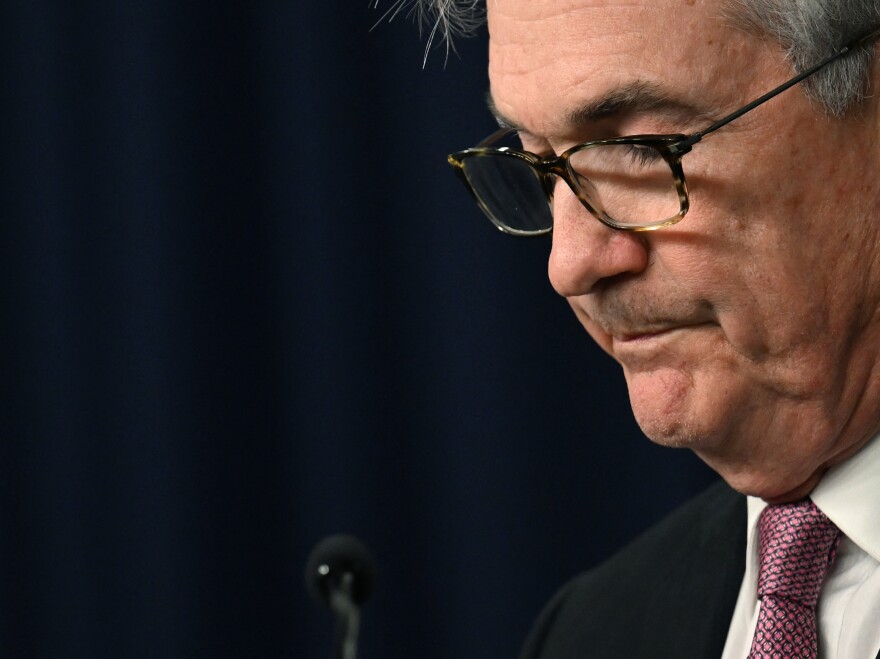
Jerome Powell was confirmed Thursday to a second term as chairman of the Federal Reserve, a powerful post from which he'll lead the central bank's challenging campaign to bring down inflation.
The 80-19 Senate vote comes as the Fed is under intense pressure to rein in consumer prices, which have been climbing at the fastest pace in decades.
It also caps an unusually combative confirmation process for leadership at the central bank, which is typically more insulated from partisan politics.
Another nominee for the Fed's board of governors, Sarah Bloom Raskin, was torpedoed by opposition from Republican senators and a key Democrat over her push to have bank regulators pay more attention to the financial risks posed by climate change.
A third nominee, Lisa Cook, was confirmed by the narrowest of margins Tuesday, with Vice President Harris casting a tie-breaking vote. Cook became the first Black woman to serve on the Fed's board.
Powell enjoys more bipartisan support, although his stewardship of the Fed will be tested by inflation, which reached a 40-year high of 8.5% in March before declining slightly in April.
Powell's first term was marked by a big U-turn
As chairman, Powell has steered the Fed through a dramatic U-turn. Early in the pandemic, he and his colleagues slashed interest rates close to zero, in an effort to prop up the economy. Now, they're aggressively raising rates, to tamp down demand and bring prices under control.
"Inflation is much too high," Powell told reporters earlier this month. "We understand the hardship it is causing and we're moving expeditiously to bring it back down."
The Fed raised interest rates by half a percentage point last week — the sharpest jump in more than two decades — and telegraphed plans for two more, similar-sized rate hikes in June and July. By raising borrowing costs, the Fed hopes to discourage the sizzling consumption that's been pushing prices higher.

Some critics say the Fed was slow to respond to soaring prices. For much of last year, Powell and his colleagues believed that high inflation was a temporary byproduct of the pandemic, and would soon cool off on its own. The Fed kept its easy-money policies in place for two full years, in an effort to promote full employment.
That push worked, but it also may have contributed to today's high prices. The labor market is unusually tight, and wages are rising at a rapid rate — although not fast enough to keep pace with inflation.
Getting inflation under control is a top Fed priority
Powell and his colleagues hope they can control inflation through higher interest rates without tipping the economy into recession. But the Fed chairman appears willing to do whatever is necessary to restore price stability.
"There may be some pain associated with getting back to that," Powell said last week. "But the big pain over time is in not dealing with inflation and allowing it to become entrenched."
Powell has spoken admiringly of former Fed chairman Paul Volcker, who famously tolerated punishing, back-to-back recessions in the early 1980s in order to break a decade-long cycle of runaway inflation.
"He had the courage to do what he thought was the right thing," Powell said of Volcker. "That's the test."
Powell, a Republican, was initially appointed to the Federal Reserve board by then-President Obama in 2012 and elevated to chairman by then-President Trump.





